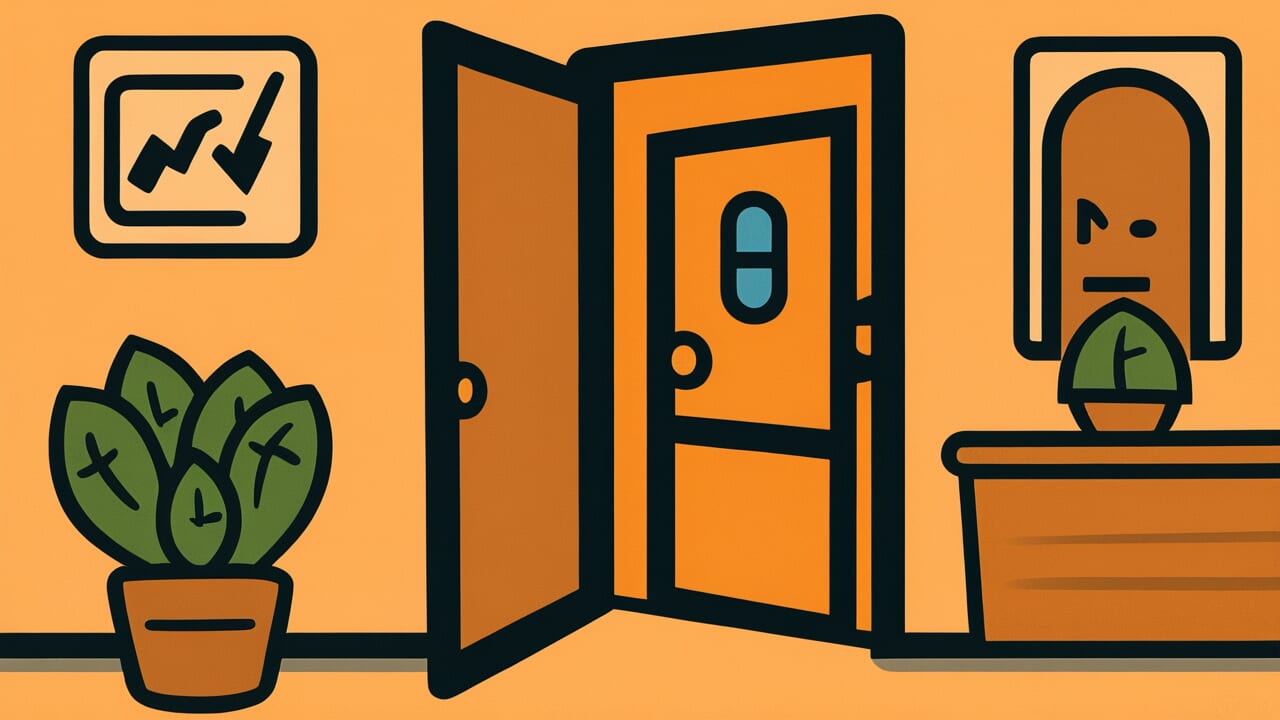How to Read “Creaking doors seldom shut fast”
Creaking doors seldom shut fast
KREE-king doors SEL-dum shut fast
The word “seldom” means “rarely” or “not often.”
Meaning of “Creaking doors seldom shut fast”
Simply put, this proverb means that things making noise often last longer than quiet ones.
The literal words paint a picture of an old door. When doors get worn, their hinges start making creaking sounds. You might think a noisy door is about to break. But these creaking doors often keep working for years. They rarely shut completely or quickly, but they don’t fall apart either.
The deeper message applies to people and situations in life. Someone who complains a lot might seem fragile or ready to quit. But often these “noisy” people keep going longer than expected. A car that makes strange sounds might run for thousands more miles. An old building that groans in the wind often stands for decades.
This wisdom teaches us not to judge by appearances or sounds. The loudest problems aren’t always the most serious ones. Sometimes the things that seem most troubled are actually the most durable. It reminds us that making noise doesn’t mean something is about to fail completely.
Origin and Etymology
The exact origin of this proverb is unknown, though it appears in various forms in English literature from several centuries ago. Early versions focused on the idea that creaking hinges continue working despite their noise. The saying likely emerged from everyday observations of household items and building maintenance.
During earlier centuries, people lived much closer to the mechanical workings of their daily lives. Doors, windows, and wooden structures were constant companions that people maintained themselves. They noticed patterns about which items lasted and which ones failed. Creaking sounds became familiar indicators that something was worn but still functional.
The proverb spread through oral tradition and eventually appeared in written collections of folk wisdom. Over time, people began applying it beyond literal doors to describe people and situations. The meaning expanded from simple mechanical observation to broader life wisdom about durability and appearances.
Interesting Facts
The word “seldom” comes from Old English “seldan,” meaning “at few times” or “rarely.” This makes the proverb’s rhythm particularly memorable through its combination of hard consonants and softer vowel sounds.
The concept of creaking as a sign of wear but not failure reflects practical knowledge about wood and metal. When hinges creak, they’re often still structurally sound but need lubrication. Complete silence from old mechanisms can sometimes indicate they’ve seized up entirely.
Usage Examples
- Manager to HR director: “Don’t worry about the employee who keeps threatening to quit – creaking doors seldom shut fast.”
- Friend to friend: “Your neighbor has been saying he’ll move away for three years now – creaking doors seldom shut fast.”
Universal Wisdom
This proverb reveals a fundamental truth about how humans judge durability and strength. We instinctively associate noise with weakness or impending failure. Yet experience often proves this assumption wrong. The creaking door continues functioning while the silent one might suddenly break without warning.
This pattern reflects our tendency to mistake symptoms for causes. Creaking represents adaptation under stress, not collapse. The door has found a way to keep working despite wear. Similarly, people who voice their struggles often develop coping mechanisms that help them endure. They’re processing stress audibly rather than letting it build up silently until something snaps.
The wisdom also touches on visibility versus reality in human experience. Quiet suffering often goes unnoticed until it reaches a breaking point. Meanwhile, vocal complaints draw attention but may indicate someone who’s actively managing their challenges. The person who never complains might be storing up problems that will eventually overwhelm them. The “creaking” person has found ways to release pressure and keep functioning, even if their methods seem annoying or dramatic to others.
When AI Hears This
People who complain about problems actually get more help fixing them. The squeaky wheel gets the grease, as humans say. Meanwhile, quiet people suffer alone until they break completely. This creates a strange survival advantage for those who seem weakest.
Humans have learned to respond to distress signals over millions of years. A crying baby gets fed while a silent one might starve. This ancient programming makes us rush toward noise and ignore silence. We mistake quiet endurance for strength when it’s often hidden desperation.
What fascinates me is how this reveals human wisdom disguised as annoyance. You might roll your eyes at the complaining friend or creaky door. But your irritation actually serves a purpose – it forces maintenance and care. The things that demand attention through noise survive longer than perfect silent ones.
Lessons for Today
Living with this wisdom means learning to look beyond surface noise to understand what’s really happening. When someone complains frequently, the natural response is often irritation or assumption that they’re weak. But this proverb suggests considering whether their “creaking” might actually indicate resilience and ongoing effort to cope with real challenges.
In relationships and work situations, this understanding changes how we respond to different communication styles. The colleague who regularly voices concerns might be more reliable than the one who stays silent until they suddenly quit. The friend who always seems to have problems might actually be better at processing difficulties than someone who appears perfectly composed until they have a breakdown.
The wisdom also applies to recognizing our own patterns and those of systems around us. Sometimes the loudest problems aren’t the most urgent ones. A business that openly discusses its challenges might be healthier than one that presents a perfect facade. Personal relationships that involve regular small conflicts might be more durable than those that avoid all disagreement until major issues explode. Learning to distinguish between functional “creaking” and genuine breakdown helps us allocate our energy and concern more effectively.



Comments